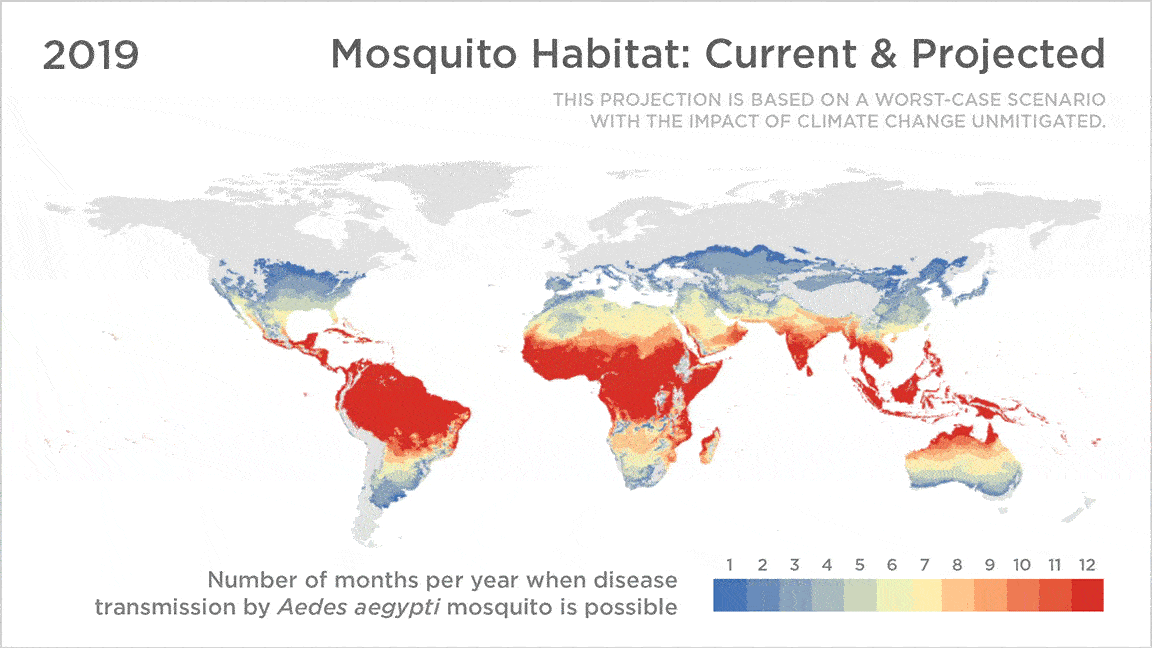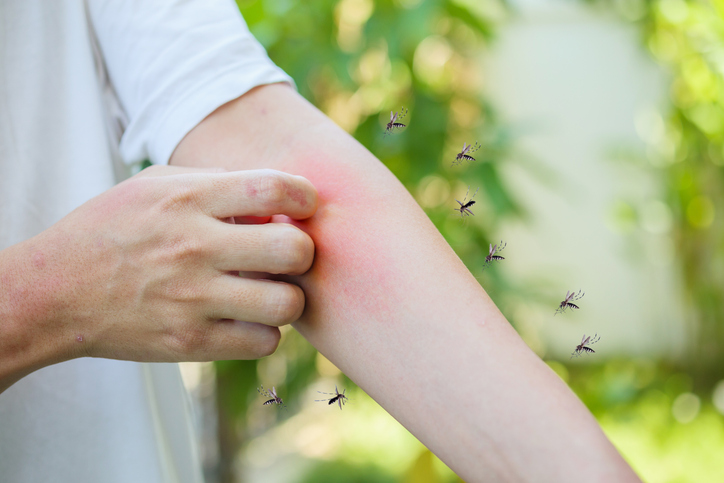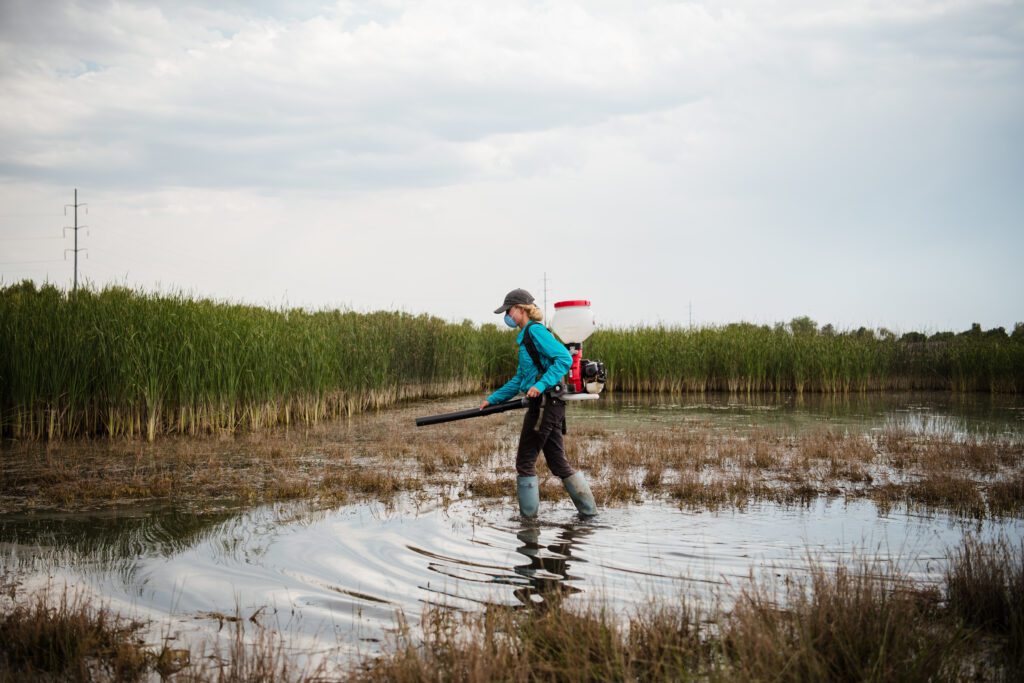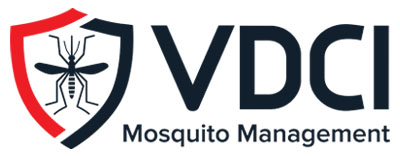How Climate Change Affects Mosquito Populations
One might not immediately consider how the changing climate affects every aspect of our planet. Among these impacts is the potential shift in mosquito populations. Climate change can affect the number of mosquitoes in various regions around the world. Changes in temperature, precipitation, and humidity brought about by climate change can create more favorable conditions for mosquitoes to breed, survive, and proliferate. These conditions can also lower mosquito populations due to less precipitation, making some environments less favorable for mosquito breeding. Warmer temperatures can accelerate mosquito breeding cycles and extend their active seasons, while increased rainfall may increase the number of breeding sites available to mosquitoes. Consequently, regions previously too cold or dry for mosquitoes may become more hospitable, potentially leading to an increase in mosquito populations.
This could have significant implications for the spread of mosquito diseases such as dengue fever and West Nile virus, posing new challenges for public health systems. In fact, NPR reports that researchers believe as many as a billion people could be newly exposed to mosquito diseases within the century.

Photo credit: NPR
Increased Mosquito Populations
Climate change affects ecosystems worldwide, and one of its less welcome outcomes is the creation of more favorable conditions for mosquito populations to thrive. As global temperatures rise, many regions are experiencing warmer climates and more frequent and intense periods of rainfall. These conditions are ideal for mosquitoes, as they require warm temperatures to survive and standing water to breed. Additionally, the changing climate is leading to warmer winters, allowing mosquito populations to survive and remain active for longer periods throughout the year. This not only increases the likelihood of mosquitoes transmitting disease-causing pathogens but also allows mosquitoes to expand their geographical range into areas previously too cold for them to survive.
Risk of Mosquito Diseases
The risk of mosquito diseases is a significant public health concern. As the rate of mosquitoes increases, it logically follows that there could be a higher number of mosquitoes carrying disease-causing pathogens. This is because mosquitoes are vectors for several infectious diseases, including malaria, dengue fever, Eastern Equine Encephalitis, and West Nile virus. When there are more mosquitoes, there’s a greater chance for them to come into contact with infected hosts and subsequently transmit these disease-causing pathogens to humans. This can be a significant public health threat as it elevates the potential for outbreaks that can have devastating impacts on human populations.

What Can Be Done to Fix This Problem?
Addressing rising mosquito populations requires a multifaceted approach that involves Integrated Mosquito Management (IMM) programs. IMM strategies are comprehensive, focusing on reducing mosquito habitats and populations through environmentally responsible techniques that limit exposure to non-target species. This includes surveillance, disease testing, larviciding, and adulticiding, which allow us to target mosquitoes at all life stages.
Public education plays a crucial role in mosquito control, especially in implementing the “4 D’s”: Drain, Dress, Defend, and Dusk/Dawn. Encouraging communities to drain standing water from their properties eliminates mosquito breeding sites. Dressing in light-colored, long sleeves and pants when outdoors, particularly during peak mosquito activity times, can reduce bites. Defending against bites with EPA-approved insect repellents containing 10-30% provides personal protection. Finally, being aware that mosquitoes are most active during dusk and dawn prompts individuals to take extra precautions during these times. Through a combination of control measures and public education, communities are better prepared to combat the potential for rising mosquito populations brought on by climate change.

Integrated Mosquito Management with VDCI
IMM is an essential strategy in our fight against the rising mosquito populations due to climate change. By employing a comprehensive approach to mosquito management, Vector Disease Control International (VDCI) not only targets the immediate mosquito threats but also lays the groundwork for long-term prevention and control. As we face the challenges brought forth by a changing climate, the integration of IMM with VDCI’s expertise and innovation becomes ever more critical in safeguarding our future against the increasing threat of mosquito diseases.
Contact Our Experts
Complete the form below or call us at 800-413-4445 to speak to an expert about your mosquito management needs.
 Since 1992, Vector Disease Control International (VDCI) has taken pride in providing municipalities, mosquito abatement districts, industrial sites, planned communities, homeowners associations, and golf courses with the tools they need to run effective mosquito control programs. We are determined to protect the public health of the communities in which we operate. Our mosquito control professionals have over 100 years of combined experience in the field of public health, specifically vector disease control. We strive to provide the most effective and scientifically sound mosquito surveillance and control programs possible based on an Integrated Mosquito Management approach recommended by the American Mosquito Control Association (AMCA) and Centers for Disease Control and Prevention (CDC). VDCI is the only company in the country that can manage all aspects of an integrated mosquito management program, from surveillance to disease testing to aerial application in emergency situations.
Since 1992, Vector Disease Control International (VDCI) has taken pride in providing municipalities, mosquito abatement districts, industrial sites, planned communities, homeowners associations, and golf courses with the tools they need to run effective mosquito control programs. We are determined to protect the public health of the communities in which we operate. Our mosquito control professionals have over 100 years of combined experience in the field of public health, specifically vector disease control. We strive to provide the most effective and scientifically sound mosquito surveillance and control programs possible based on an Integrated Mosquito Management approach recommended by the American Mosquito Control Association (AMCA) and Centers for Disease Control and Prevention (CDC). VDCI is the only company in the country that can manage all aspects of an integrated mosquito management program, from surveillance to disease testing to aerial application in emergency situations.

